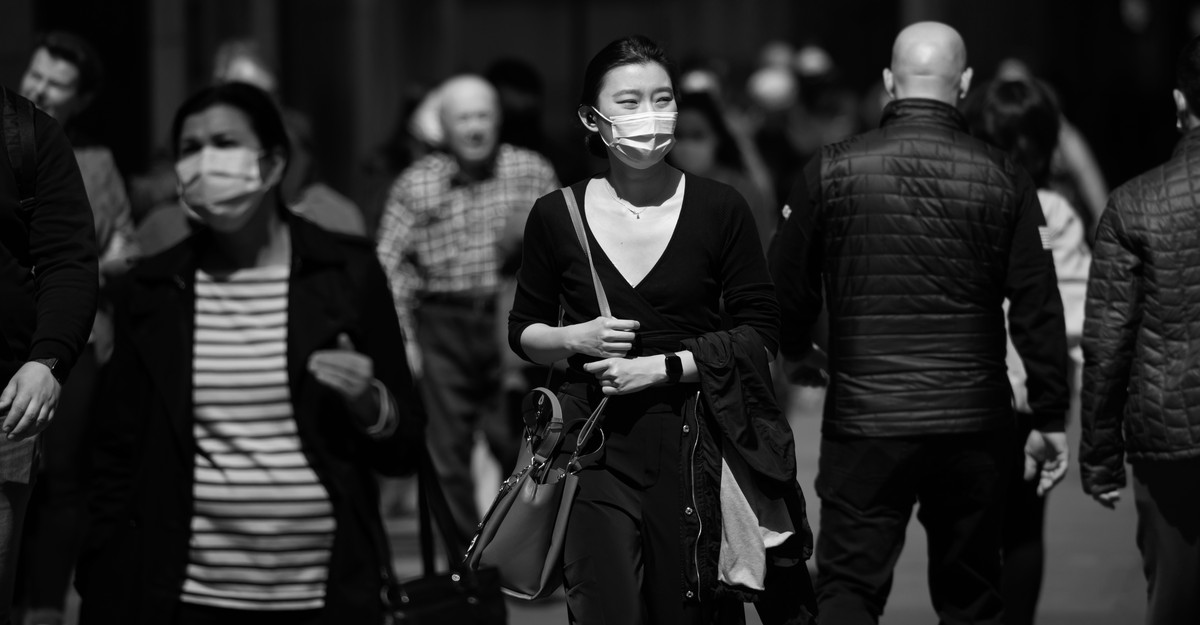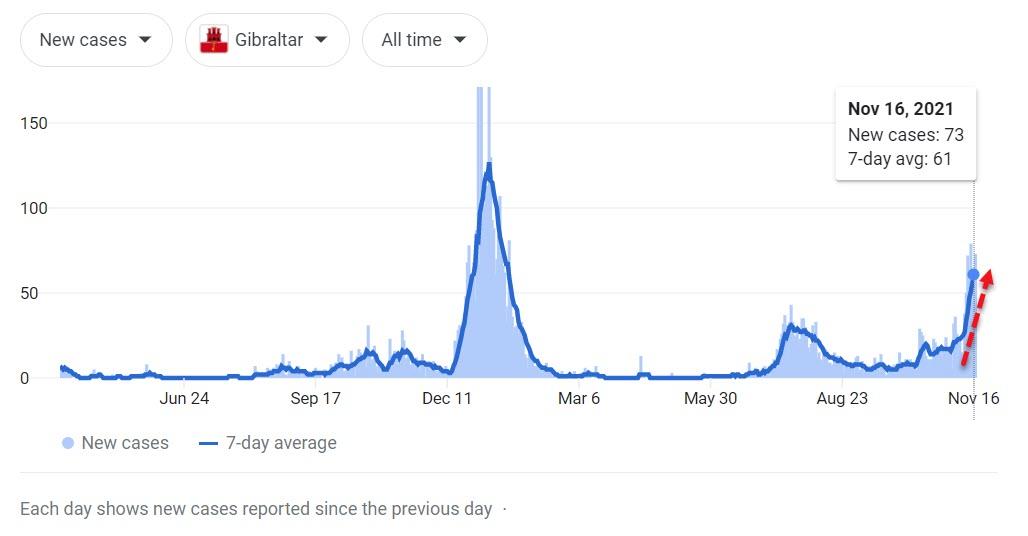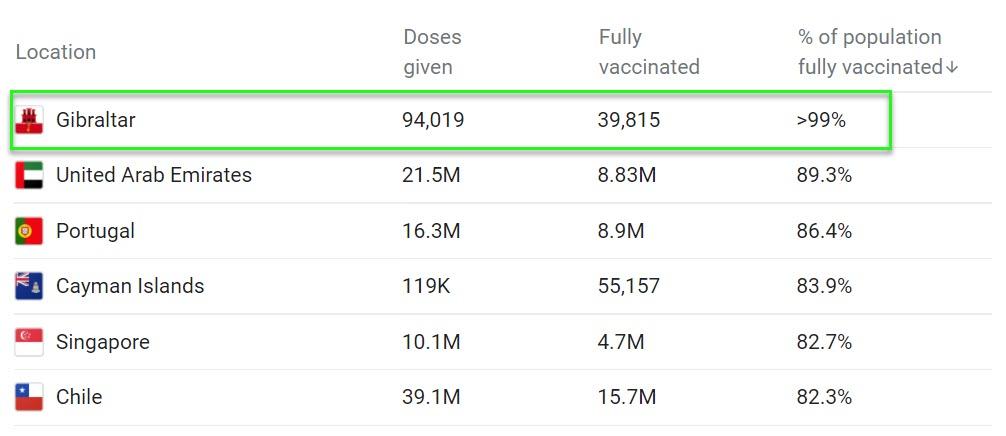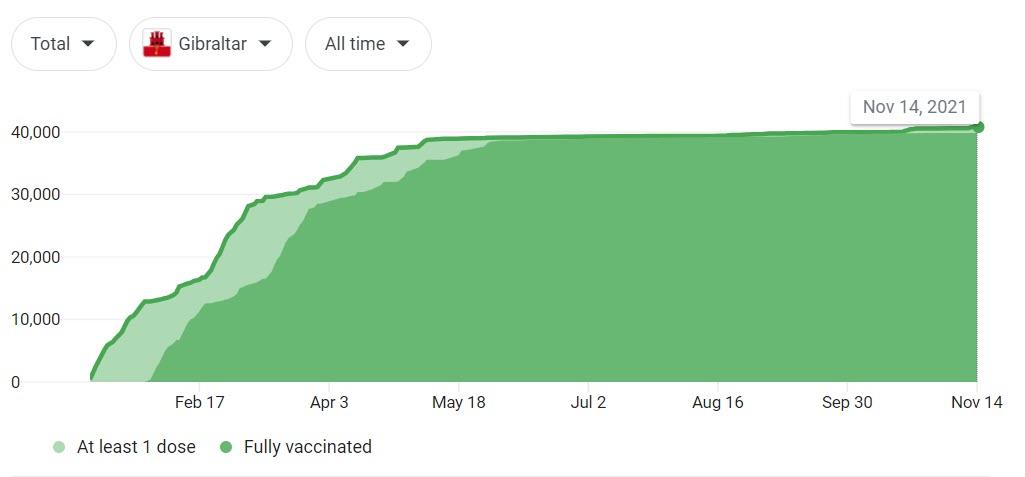Vaccination is the best protection against infection. But when breakthroughs do occur, a very basic question still has an unsatisfying answer.
By
Yasmin Tayag
Vaccination is the best protection against infection. But when breakthroughs do occur, a very basic question still has an unsatisfying answer.

www.theatlantic.com
The fear of breakthrough COVID-19 infections spoiled the summer. In the early days of vaccine bliss, many Americans had thought that the shots were a ticket to normalcy—and at least for a while, that’s precisely what public-health experts were telling us: Sure, it was still possible for vaccinated people to get COVID-19, but you wouldn’t have to worry much about spreading it to anyone else. Interim guidance shared by the CDC in March stated that these cases “
likely pose little risk of transmission,” and a few weeks later, CDC Director Rochelle Walensky said that “
vaccinated people do not carry the virus.”
And then came Delta. The hyper-contagious variant sent cases skyrocketing and led ICUs to yet again fill up with COVID patients. And it also spurred a full-on freak-out that our understanding of who could spread the virus was all wrong. In early August, the CDC
published its findings on a huge cluster of COVID cases in Provincetown, Massachusetts, concluding that 74 percent of cases had occurred in vaccinated people. The supposed implication of that finding was even more ominous: Vaccinated people were
just as likely to spread the virus as the unvaccinated. The CDC quickly went back to recommending that vaccinated people wear masks indoors while news outlets ran headlines such as “
Vaccinated People With Breakthrough Infections Can Spread the Delta Variant, CDC Says.” The worst-case scenario—that vaccinated people might be going about their lives only to be seeding tons of new coronavirus cases—all of a sudden seemed possible.
Three months later, we have fortunately not seen this doomsday scenario come to pass—the fears raised by the Provincetown report were largely overblown. But that doesn’t mean that the vaccinated are in the clear, either. Breakthrough infections
are still happening, and they can lead to transmission. But we still don’t know just how widely that spread actually happens.
Read: No, vaccinated people are not ‘just as likely’ to spread the coronavirus as unvaccinated people
Vaccinated people spread the virus less overall because they are
significantly less likely to get infected in the first place. In early September, the CDC
found that six unvaccinated people were testing COVID-positive for every one vaccinated person. But there are plenty of reasons to be optimistic beyond that. Some
recent research shows that even once they’ve been infected, the vaccinated are less likely to spread the coronavirus than the unvaccinated. “We’re back in this category of
Yeah, it can happen, but it seems to be a very rare event,” Ross Kedl, an immunology professor at the University of Colorado School of Medicine, told me.
He pointed me to two studies, neither of which has been peer-reviewed, to make his point. One shows that although
transmission did occur among the vaccinated in Provincetown, those cases represent what Kedl calls a “very limited” proportion out of the total number of infections that occurred as part of that outbreak. In the other study, researchers in the United Kingdom found that the Pfizer and AstraZeneca vaccines
consistently reduced transmission downstream of breakthrough cases. Much of the original Delta concern was based on something called “viral load”—the amount of virus a person carries while infected. But the researchers concluded that viral load is just one of many factors correlated to transmission reduction. In other words, even if vaccinated and unvaccinated people have the same viral load, it may not necessarily mean they are just as likely to spread the virus.
One reason for this may be that vaccinated people carry less infectious virus particles, as (not-yet-peer-reviewed) research
from the Netherlands has recently illustrated. Although it’s widely assumed that virus particles carried by the vaccinated and unvaccinated are the same, basic principles of immunology actually predict otherwise, Kedl told me. Virus particles expelled by a vaccinated person are thought to be coated in antibodies—some of which are
produced in the nose and mouth and are considered part of
“mucosal” immunity—so “we can expect less of a downstream transmission,” he said.
Other researchers have come to similar conclusions. “The data are very clear that vaccinated individuals are less likely to spread the virus to others than unvaccinated individuals,” Christopher Byron Brooke, an assistant professor at the University of Illinois at Urbana-Champaign, told me in an email. A recent
paper Brooke co-wrote showed that vaccinated people shed less virus, stop shedding virus sooner than the unvaccinated, and shed particles that are less infectious—supporting the notion that they’re less likely to transmit disease.
One study from the Netherlands found a 63 percent reduction in household transmission among the vaccinated. That’s a testament to our vaccines: Homes are a “setting where the deck is heavily stacked towards transmission since members of a household are in extremely close contact for long stretches of time,” Brooke said. (However, another recent study
didn’t find a statistically significant difference in household transmission between vaccinated and unvaccinated people.) Ultimately, Brooke said, you can certainly say the transmission risk for vaccinated people is lower, “but I don’t really know how you define ‘low.’”
Read: Post-vaccination infections come in 2 different colors
The new research so far hasn’t swayed the CDC, which remains cautious. A spokesperson for the agency told me in an email that the data that have come out since the Provincetown study make it clear that fully vaccinated people with a breakthrough infection can spread the virus to other people, including the vaccinated. Although the science is still emerging, the spokesperson said that “it seems that at least early after infection, fully vaccinated people with breakthrough infection can be equally as infectious and more likely somewhat less infectious to others than unvaccinated people who are infected.”
Other public-health experts are wary too. “I think that the jury is still out about the extent to which vaccination might reduce the risk of transmission, but we do know that transmission does occur,” Lisa Maragakis, the senior director of infection prevention at the Johns Hopkins Health System, told me. “I wouldn’t say it’s low [risk].” She alluded to data showing similar viral loads in vaccinated and unvaccinated people.
All the researchers I spoke with agreed on one thing: Vaccination is still the best way to protect against infection and transmission. The vaccines may not be perfect, but they are by far the best tool we have in the fight against COVID-19—for protecting both yourself and others. Moreover, vaccinated people can tamp down on spreading the virus by steering clear of situations in which that’s more likely to happen. When it comes to breakthrough infections, “one thing that’s not discussed enough is behavior,” said Syra Madad, an epidemiologist at New York City Health and Hospitals. The Provincetown event—which included tightly packed indoor parties during the rise of Delta—wasn’t exactly conducive to preventing breakthroughs. Precautions such as masking and ventilation are still important. For those reasons, Maragakis will be “watching the data in a concerned way” as the holidays approach: If people begin to gather indoors more, that might lead to more breakthrough infections—and more spread.
[continued...]






